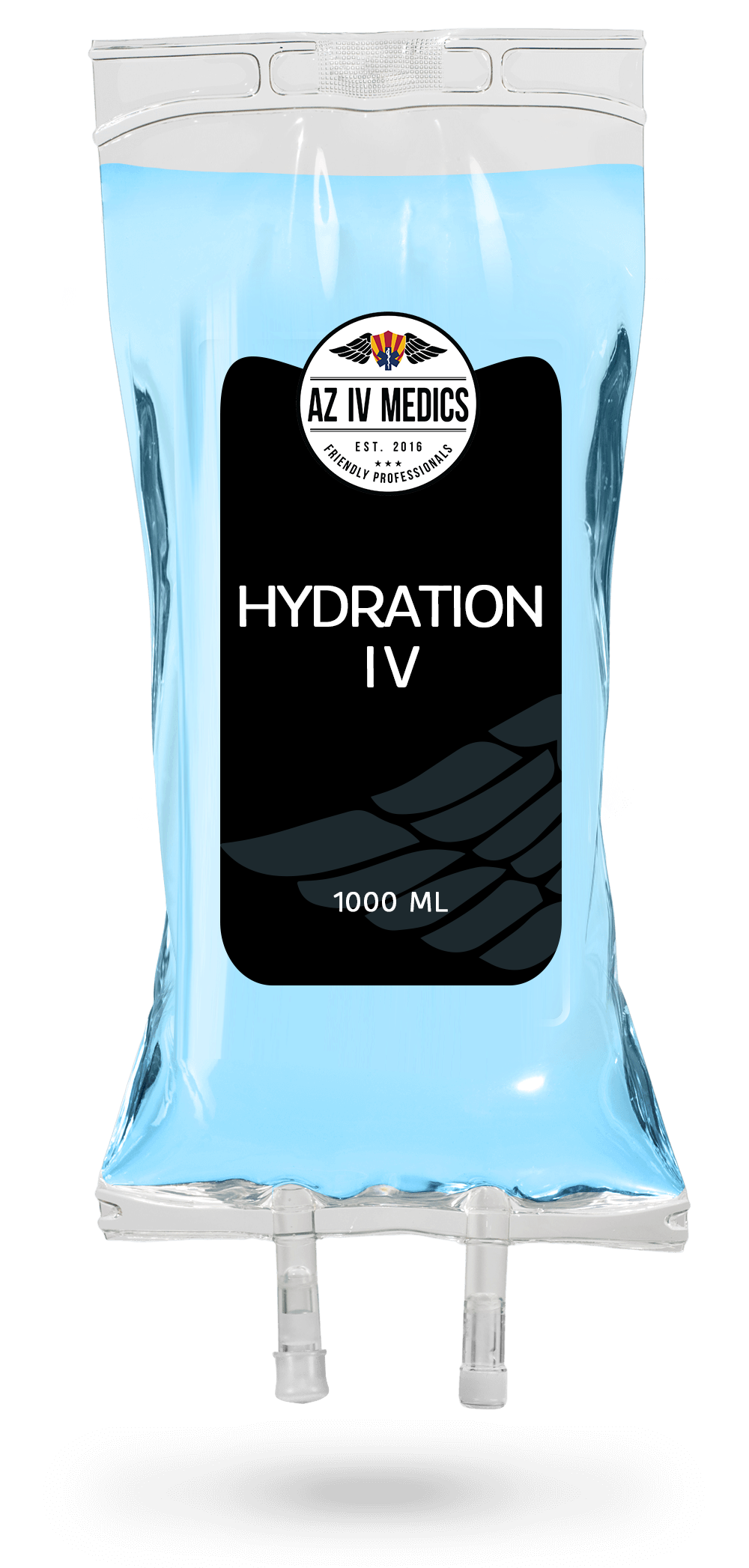
Hydration IV Drip
Our Most Budget-Friendly Choice: Perfect for individuals who need fast hydration without the added cost of extra vitamins or supplements. This option focuses on delivering essential fluids to quickly rehydrate the body, making it an affordable and efficient solution for those seeking rapid recovery or hydration during busy schedules, training sessions, or after physical activity. It provides the hydration you need without unnecessary extras, offering excellent value for those on a budget.
$130 Mobile
What's In Our Bag

Lactate Ringers

Normal Saline
Understanding IV Hydration Therapy: How It Works and Benefits
IV hydration therapy is a medical treatment used to address severe dehydration or dehydration that hasn’t been resolved through oral hydration. It involves administering fluids and electrolytes directly into the bloodstream via a vein, providing a quick and effective way to restore hydration and balance in the body. This treatment bypasses the digestive system, allowing the body to absorb the fluids and electrolytes more efficiently than drinking water or sports drinks. The IV solution typically contains a mix of fluids like saline, glucose, and potassium, tailored to the patient's needs. A needle is inserted into a vein, usually in the arm, and connected to a bag of IV solution, which is carefully monitored by a healthcare professional to ensure proper infusion rates and dosage.
Rehydrate Quickly and Effectively with Arizona IV Medics
Arizona IV Medics makes staying hydrated effortless by bringing our IV hydration services directly to you. We deliver rapid, effective hydration with IV fluids that go straight into your bloodstream for quick results. Our wide range of solutions includes electrolyte cocktails and vitamin drips, tailored to meet your specific needs. We serve a 30-mile radius around Phoenix, Tucson, Scottsdale, and Flagstaff, with our nurses and paramedics typically able to reach you in an hour or less. Ready to feel better? Call us at 623-521-5034 or book an appointment online!
Maintaining fluid balance is crucial for overall health. IV hydration therapy offers a safe and effective way to replenish fluids and electrolytes lost due to dehydration or other medical conditions. In addition to helping with hydration, this treatment can boost immune function, reduce inflammation, and promote healthy skin. Before undergoing IV therapy, it's important to consult with a healthcare professional to determine if it's the right option for you. With proper care and preparation, IV hydration therapy can be a life-saving solution for those needing rapid rehydration and nutrient replenishment.
See What Our Patients Are Saying
Jordan came yesterday to help my 20-year-old daughter who’s been fighting a bug for weeks. He communicated via text with an ETA and was prompt. He was a delight from the moment he walked in. Professional, courteous, gentle, knowledgeable and kind. He put my daughter, who dislikes needles, at ease and in no time at all she was hooked up with drip running. We had a great conversation while waiting for the bag to finish and I will definitely be using him if we should need the service again. Jordan is a class act and great at what he does. Don’t hesitate to contact him.
Called this morning and Nurse Angie was at my door within an hour! She was so knowledgeable and compassionate. The treatment was no different than was the ER usually does to treat the illness and there was no hours of waiting to see a doctor to tell me I need a bag of saline and some vitamins. Also the non narcotic medications the nurse was able to provide were the same i would have received in the ER. Totally an amazing service!
Ashley came by when I was terribly ill with the flu. I contacted them prior to operating hours and was surprised to have them contact me prior to their hours. They came close to an hour after I contacted them and let me tell you, she was awesome. She came to my home, let me get comfy in bed and hooked me right up. Gave me Toradol (may have spelled it incorrectly) immediately since my headache was the main concern. She wasn’t pressing for conversation, which I thought was great cause I probably wouldn’t have engaged much due to feeling crummy. After several minutes my head was feeling so much better.


